By Simon McKenzie (Mac) and Jane Sassienie
This is the second article in Social Space’s three-part series on Societal Leadership. Read the first article Part 1 and Part 3.
To build a better world for future generations, we need a new type of leadership that can unite both people and organisations towards a higher purpose. Societal leaders serve not only their companies, divisions, teams or themselves, but also the world.
As human beings, our beliefs constitute the lens through which we see and judge the world and ourselves, while our capacities consist of our unique abilities and powers.
Some individuals have the exceptional capacity to nurture others; others have the exceptional capacity to inspire and influence people to follow them. There are those who are able to take action in the midst of fear; and there are those with a distinctive capability to view the world in ways others cannot.
In our earlier article, we introduced the Bridge Societal Leadership Model and outlined some common beliefs of societal leaders. This essay will focus on some of their key capacities.
The Bridge Societal Leadership Model
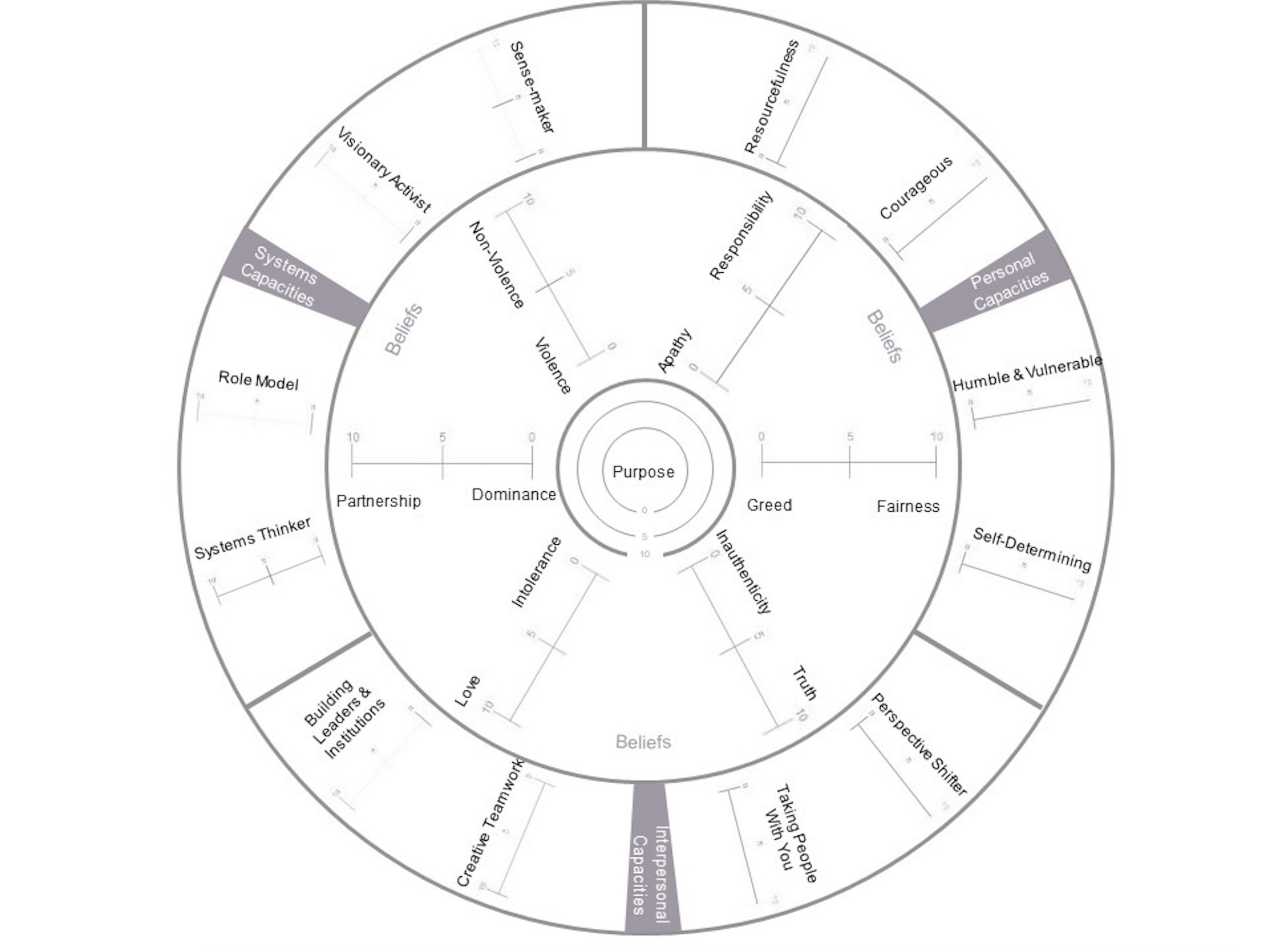
Source: Bridge Partnership and Bridge Institute
#1 Resourcefulness
.jpg)
Image via Wikimedia Commons (CC BY 2.0)
“One of the most difficult things is not to change society—but to change yourself.”—Nelson Mendela
To catalyse transformation in society, the journey cannot begin without the wherewithal to change oneself. At the heart of resourcefulness is the awareness that when one is not at their best, it is in their hands and they can choose to change it. Before anything can change in the outer world, the individual needs the skill to transform the habits of their attitudes and their consequent behaviour and results. As Lao Tzu said, “It is wisdom to know others. It is enlightenment to know one’s self.”
When we are at our best—when we feel confident and resourceful, powerful and inspired, or even relaxed and calm—we are also at our most effective. We can speak clearly and motivate others. We can think clearly and see the wood from the trees. We can be sympathetic and understanding. We find the right words of encouragement—or the discerning critique that makes a difference to others.
However, most of us are not at our best all of the time. In fact, these moments can be the exception for some rather than the rule. We find ourselves overwhelmed, feeling stressed, hung up on details, or just too focused on outcomes and targets that we lose sight of the big picture or the meaning in what we are doing. We might also find ourselves angry and resentful or scared of inexplicable shadows.
When we are not resourceful, our relationships, our thinking, ideas and creativity are poorer. To a large extent, our state is the vital ingredient of our ability to think, innovate, relate and lead—and if we experience life as if our inner experience is at the effect of external events, we are largely helpless in making resourceful choices during difficult moments. Resourcefulness is thus about knowing how to choose our state or attitude, no matter what is happening in the world around us and no matter how much fear or anger it may bring up.
Nelson Mandela stands as a global icon in terms of his ability to shift his mind. In the 27 years he spent in incarceration, he suffered ill-treatment and solitary confinement. He lost both his mother and his eldest son whilst in prison and was not permitted to attend their funerals. Yet, Mandela learned to forgive and lead all South Africans when he became their president.
#2 Courage
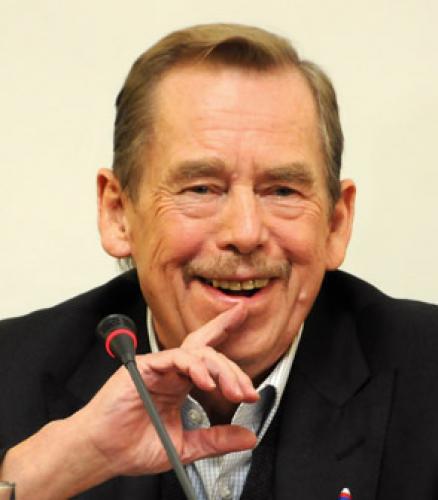
Image via Wikimedia Commons (CC BY-SA 3.0)
“The salvation of this human world lies nowhere else than in the human heart, in the human power to reflect, in human meekness and human responsibility.”—Vaclav Havel
When we care deeply about something, it unleashes within us immense courage. This in turn inspires us to put aside any self-limiting thoughts and dare to step forward.
Vaclav Havel was born in 1936 in Czechoslovakia and lived through the Nazi takeover in the 1930s and the Communist takeover in the 1940s as a child. In the 1970s, he started taking a lead role in challenging the ruling elite, and was focused on resisting against a totalitarian society. He was jailed in 1977 for four months, interrogated and manipulated in various ways on a daily basis.
Havel had a vision so compelling he was not enslaved by fear; instead, he rose to the occasion and found his voice. His deep care for his cause allowed him to tap deeply into inner reservoirs of courage. Havel become the last President of Czechoslovakia from 1989 until the dissolution of Czechoslovakia in 1992 and then became the first President of the Czech Republic from 1993 to 2003.
Societal leadership happens when one’s consciousness of the need for change is met with courageous action, as demonstrated by Vaclav Havel.
#3 Humility and Vulnerability
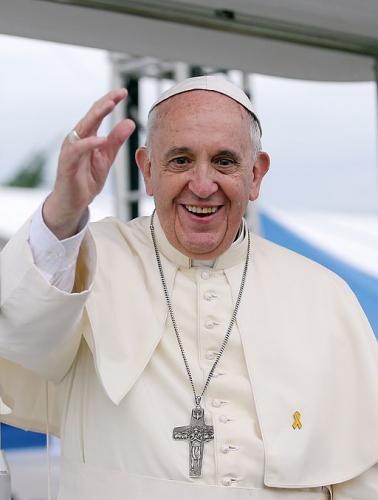
Image via Wikimedia Commons (CC BY-SA 2.0)
“Humility saves man: pride makes him lose his way."—Pope Francis
Being humble is no easy feat. As we spend our lives trying to be better than others—achieving that promotion, getting onto that team, scoring the best grades—our egos and sense of self-importance can grow with us. With pride comes arrogance, superiority and impatience.
Humility should not be confused with weakness; it surfaces when there is inner contentment and self-acceptance. A humble leader exudes grace, patience and generosity.
Humble and vulnerable leadership has many benefits. In addition to earning respect and strengthening teams, it also invites others to take risks and own mistakes, thereby fostering trust. A great example of a humble and vulnerable leader is Pope Francis (born Jorge Mario Bergoglio), the head of the Catholic Church.
Throughout his life, Pope Francis has been noted for his humility, concern for inequality and commitment to interfaith dialogue. Since his papacy began in 2013, he has amplified the Church’s commitment to renewal and relevance. His humility is illustrated in many instances. Some of these include his decision not to live in the apostolic palace but in humble lodgings, and to travel around in a modest Fiat.
Open to a wide-ranging discussion of societal issues, Pope Francis repeatedly stresses the importance of continuous dialogue. In 2015, he said, “Neither the Pope nor the Church have a monopoly on the interpretation of social realities or the proposal of solutions to contemporary problems.”
It is paradoxical that the Pope has both strong convictions and humility. For instance, he argues forcefully that economic inequality and climate change are together a fundamental threat to humanity. But his humility and belief in listening to many voices are why he is able to inspire others with his strong convictions.
As Pope Francis demonstrates, humility and vulnerability are not about being bigger or smaller than others; instead, it is about understanding that everyone has their greatness.
#4 Self-Determining
.jpg)
Image via Wikimedia Commons (public domain)
“I had felt for a long time that, if I was ever told to get up so a white person could sit, that I would refuse to do so.”—Rosa Parks
A self-determining person is able to construct their own knowledge without depending on outside authority. Being self-determining means that one can see and hold multiple perspectives, and reflect on them, but not lose their own. It also means they are not trapped by society’s demands to be one way or another, but instead opt for a different, more principled pathway.
An example of a self-determining leader is Rosa Parks. An activist during the American civil rights movement, and dubbed “the first lady of civil rights” by the US Congress, she became well known for her role in the Montgomery bus boycott.
On 1 December 1955, Parks was traveling on a bus when the white section filled up. The bus driver ordered her to vacate her seat, so the white passenger could sit down. However, she rejected the order and took the case to court successfully. Subsequently, the court concluded “the enforced segregation of black and white passengers on motor buses operating in the City of Montgomery violates the Constitution and laws of the United States”.
Parks is seen as an icon of resistance against racial segregation. In that moment on the bus, she illustrated self-determining leadership—rather than succumb to outside authority, she chose her own, principled path.
#5 Perspective Shifter
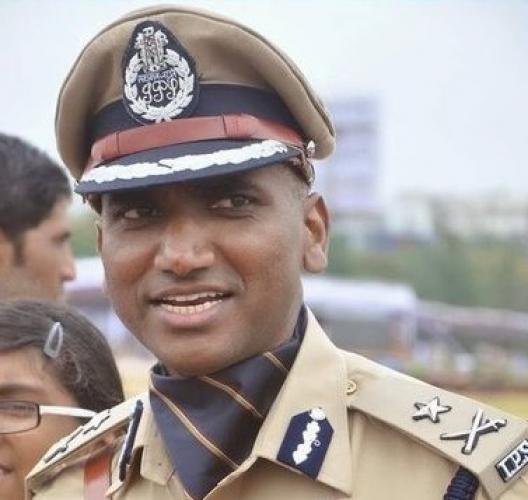
Source: Twitter
“There are two powerful places to change mindset – in the school and at home.”—Dr. Praveen Kumar
Societal leaders recognise what it takes to shift the mindset of the masses and therefore have the capacity to shift the perspectives of millions.
Consider the example of Dr Praveen Kumar, a senior police officer from the State of Telangana, India. He has dedicated his life to the building and running of 400 schools for underprivileged children, believing firmly that the key to ending discrimation lies in educating the underprivileged. As a child, he and his family were discriminated against, had to stand in different queues, were not able able to live in certain areas, and could only use certain bathrooms.
He has been instrumental in transforming and impacting the lives of 200,000 underprivileged children. Today, under Dr Praveen’s leadership, sons and daughters of daily wage labourers, farmers, vegetable vendors, masons, rickshaw pullers, roadside tea sellers, peons and auto drivers are graduating with top degrees from the most prestigious universities in India, and leading in sports, mountaineering and other fields.
Through his work with education, Dr Praveen has changed the conversation in schools and homes, and shifted the perspectives of millions of people. Because of him, many more people around the world believe in fairness and equality.
#6 Taking People with You
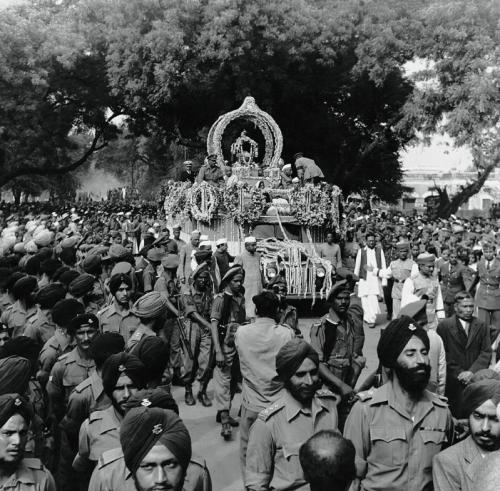
Image via Wikimedia Commons (Public domain)
“An eye for an eye only ends up making the whole world blind.”—Gandhi
Creating significant change is not the work of one person, but that of many. A societal leader therefore needs to be able to take people along their journey. That way, the leader is relying not solely on their individual knowledge and belief in a vision, but is also tuned in to the world and empathetic to those they wish to influence. As American musician Marian Anderson once said, “Leadership should be born out of the understanding of those who would be affected by it.”
Take the example of Mahatma Gandhi, who brought one of the world’s most powerful empires to its knees by using peace, love and integrity as his method for change. Even without TV or social media, he was able to inspire hundreds of millions of people to follow him. With his large capacity for empathy, Gandhi led India towards a path of peace over power, reconciling differences, and living in harmony with respect and love, even with his adversaries.
Societal leaders are not just capable of acts of kindness towards friends, acquaintances and strangers, but also in turning these acts into conscious, sustained efforts. That is how they build influence to create positive impact.
#7 Creative Teamwork

Image via Wikimedia Commons (CC BY 2.0)
“I am fighting for a new world order, a world where there’s no violation of any human being.”—Dr Sunitha Krishnan
Societal leaders build powerful, creative teams.
Indian social activist Dr Sunitha Krishnan is one such exemplar. A survivor of gang rape herself, she established the Hyderabad-based NGO Prajwala to end forced prostitution and sex trafficking. To date, Krishnan has rescued, rehabilitated and reintegrated over 23,000 women notwithstanding 14 attacks and four attempts on her life.
Dr Sunitha is a formidable leader who encourages her team members to challenge her in how she executes their shared goals. At the same time, while working incredibly hard under very challenging circumstances, she has nurtured a safe space for her staff to feel like they are part of a healthy, fun and caring family.
The Bridge team witnessed first-hand the positive effects of Dr Sunitha’s leadership. We have seen the strong shared purpose and mutual trust among the team members, and even though the various teams tackle complex and confronting challenges, they form and come together seamlessly.
#8 Builders of Leaders and Institutions
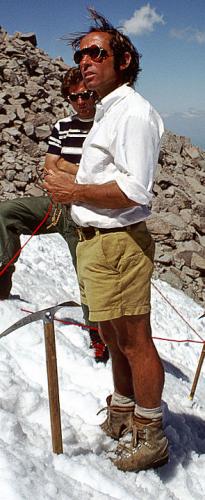
Image via Wikimedia Commons (public domain)
“The more you know, the less you need.”—Yvon Chouinard
Societal leaders are extraordinary mentors. They build leaders, who in turn go on to build enduring institutions, thereby creating positive ripples in all directions.
Yvon Chouinard is one such example. The avid rock climber and environmentalist is the founder of Patagonia, a successful clothing company that has been a pioneering influence on environmental activism, sustainable supply chains, and advocacy for public lands and the outdoors. Living its mission to “save our home planet”, it has funded numerous institutions in their efforts to protect the ecosystem and tackle climate change. Not surprisingly, Chouinard leads an inspired and purpose-driven employee base. He is a builder of leaders and a builder of institutions.
#9 Systems Thinkers
_(cropped).jpg)
Image via Wikimedia Commons (CC BY 2.0)
“You don’t run a marathon with one step.”—Christiana Figueres
Global challenges like climate change, food insecurity, healthcare and social inequality each come with a myriad of stakeholders, and are part of complex human, ecological and evolving systems. Progress therefore requires a departure from traditional, hierarchical and linear approaches, and an adoption of strategies that engage a broad network of stakeholders with complex and interconnected dynamics. This approach is known as systems thinking.
Take the example of Christiana Figueres, Executive Secretary of the UN Framework on Climate Change. In 2015, she led the historic process of the landmark Paris Agreement committing 195 countries to a framework for action on climate change. The agreement encompassed specific targets for reducing greenhouse gas emissions, support for climate mitigation and adaptation, and a monitoring and reporting framework. In the process, Figueres worked with diverse stakeholders to develop an ambitious and holistic vision for change, leveraging their commitment to mobilise action in support of their common goals.
Systems thinkers like Figueres are able to bring different stakeholders together to create a systemic transformation.
#10 Role Models
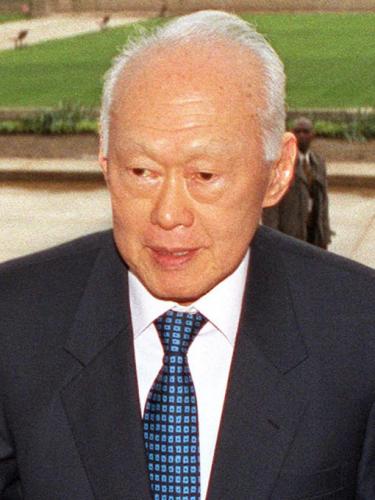
Image via Wikimedia Commons (public domain)
"Even in his deepest grief, Mr Lee never stopped caring for Singapore.”—Heng Swee Keat
The New Dictionary of Cultural Literacy defines a “role model” as someone who serves as an example of the values, attitudes and behaviours associated with a role. For example, a parent is a role model for their children. Role models can also be persons who distinguish themselves in such a way that others admire and want to emulate them.
The words “serve as an example” and “distinguish themselves in such a way that others admire” are important, because the means someone adopts must be aligned to the ends they are aspiring towards.
A moving story of role modelling comes from the founding Prime Minister of Singapore, Lee Kuan Yew. In the 1970s, squatters and manufacturing industries crowded the banks of its rivers, severely polluting them. In response, he said, “The Ministry of Environment should make it a target: in 10 years, let us have fishing in the Singapore River and Kallang River. It can be done."
Today, the rivers are exceptionally clean, and Singapore was on Lee's mind even on the day of his wife’s funeral. When he saw trash floating in the river, he asked his security forces to take photos and inform the ministry. "Even in his deepest grief, Mr Lee never stopped caring for Singapore”, recalled his private secretary.
High-profile leaders are watched constantly in everything they do. If they ask others to do anything they are not prepared to do themselves, it creates profound dissonance. Role modelling is thus a key capacity of a societal leader, as captured in Gandhi’s famous quote: “Be the change that you wish to see in the world.”
#11 Visionary Activists
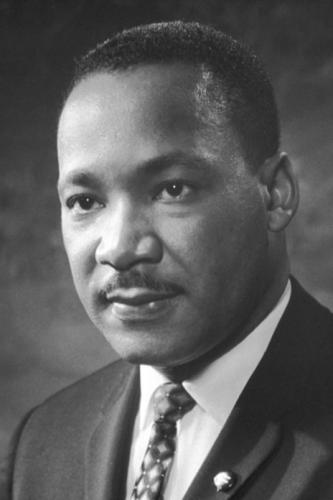
Image via Wikimedia Commons (public domain)
“We are not makers of history. We are made by history.”—Martin Luther King, Jr
Being a visionary goes to the heart of leadership. Visionary leaders see the possibility to change something and are brave enough to make it happen. A visionary articulates objectively what the current reality is (often putting the metaphorical elephant in the room)—as well as what it could be (seeing beyond the current situation). A societal leader has the vision to challenge the way things are done and to inspire change. As futurist Buckminster Fuller says, “You never change things by fighting the existing reality; to change something, build a new model that makes the existing model obsolete.”
On 28 August 1963, Martin Luther King Jr. delivered a speech during the March on Washington for Jobs and Freedom, in which he called for civil and economic rights, and an end to racism. His words set out both his vision and his perspectives on the reality of the time:
“I have a dream that one day the state of Alabama, whose governor's lips are presently dripping with the words of interposition and nullification, will be transformed into a situation where little black boys and black girls will be able to join hands with little white boys and white girls and walk together as sisters and brothers.”
Only when we have a great dream—a vision of what we want to accomplish—will we truly know the extent of our potential, courage and creativity. Societal leaders have a determined focus on making things change, and making wider impact in the world.
#12 Sense-Makers
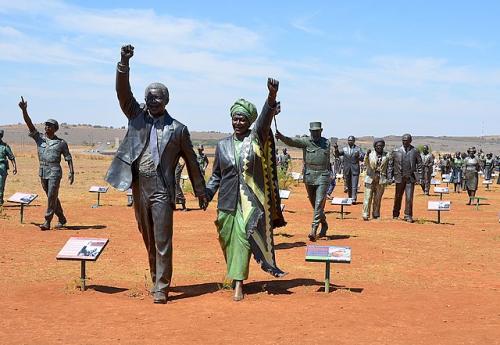
Image via Wikimedia Commons (CC BY-SA 4.0)
Sense-making is how we interpret our own action and the world around us. It is the capacity to embody deep wisdom, coupled with the ability to determine the right thing to do, often unexpected or unorthodox. Societal leaders seek transformation of organisations towards a higher purpose, bringing opposites together and finding new solutions.
As humans, our sense-making capacity develops and matures with age. Some people plateau eventually, while others carry on growing and evolving. In times of exponential change, societal leaders are committed to continuing their own evolution and developing their ability to navigate the growing complexities around them.
Consider the case of Nelson Mandela, who was released after 27 years in a South African prison. When he became President, his country was on the brink of civil war, and many people saw his rise to presidency as an opportunity to deliver retribution on the whites. Mandela, however, saw his actions and the world differently: he instead inspired South Africans to follow him in building a “rainbow nation” celebrating its diversity.
Mandela’s remarkable sense-making is demonstrated in his ability to create a higher meaning for all countrymen and women. Demonstrating his vision for a “rainbow nation”, he notably walked onto the rugby field of the 1995 Rugby World Cup finals, wearing the Springboks jersey and cap. The act powerfully unified the country. Of the 63,000 people in the stadium, 62,000 were white. When they saw him, they rose to their feet and chorused his name. It was, as Desmond Tutu would describe it, "an electric moment".
This article has set out some core capacities of societal leaders. It is the second in a three-part series on societal leadership. Stay tuned for the third and final essay discussing ways one can enhance their ability to be a societal leader. We hope readers consider how these insights and perspectives might take them on a path towards leading for a better world.
Banner image via Unsplash
|
Simon McKenzie (Mac) is a director of Bridge Partnership and one of the co-founders of the Bridge Institute. Based in Singapore, Mac’s expertise is in leading societal programmes on behalf of governments and corporates. The programmes he leads bring the highest levels of government, business and civil society together to solve pressing societal challenges. These pioneering programmes are now called SDG17, after the Sustainable Development Goal 17 Partnerships. They apply leadership, strategy, systems thinking, design thinking and policy tools to support breakthroughs in thinking and action. Mac can be reached at mac@bridge-partnership.com |
|
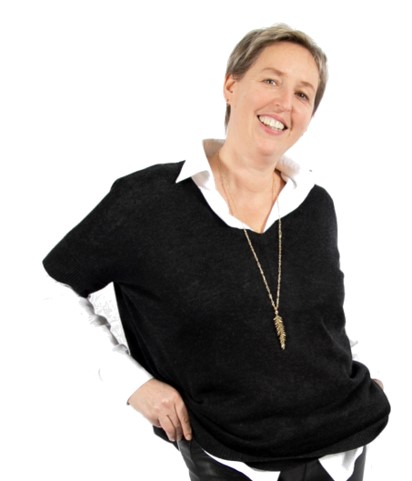 |
Jane Sassienie is a director of Bridge Partnership and a co-founder of the Bridge Institute. She has been working in the field of leadership and system evolution for more than 25 years, and in Bridge for over 20 years. Based in London, Jane’s expertise is in understanding how to equip leaders, organisations and social systems with the capabilities they need to sustain transformation. She has designed the programmes for Bridge and the Bridge Institute that bring together government, business and civil society in partnership to tackle some of the most difficult societal challenges. Jane can be reached at Jane.Sassienie@bridge-partnership.com |








Comments